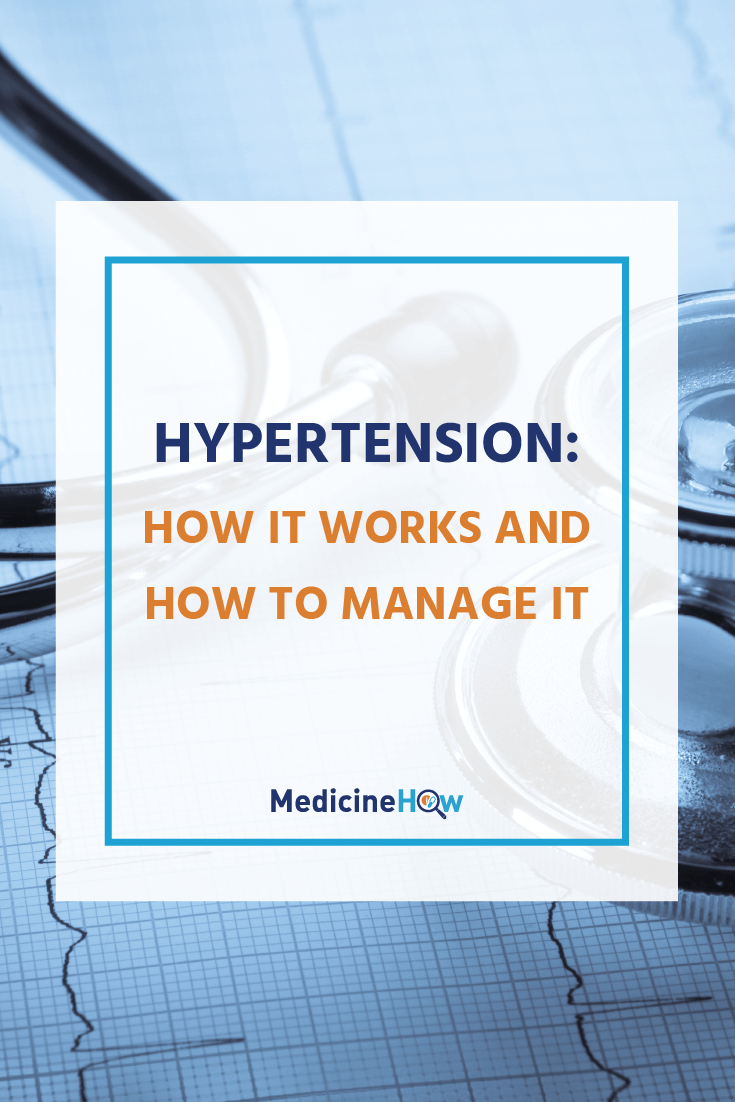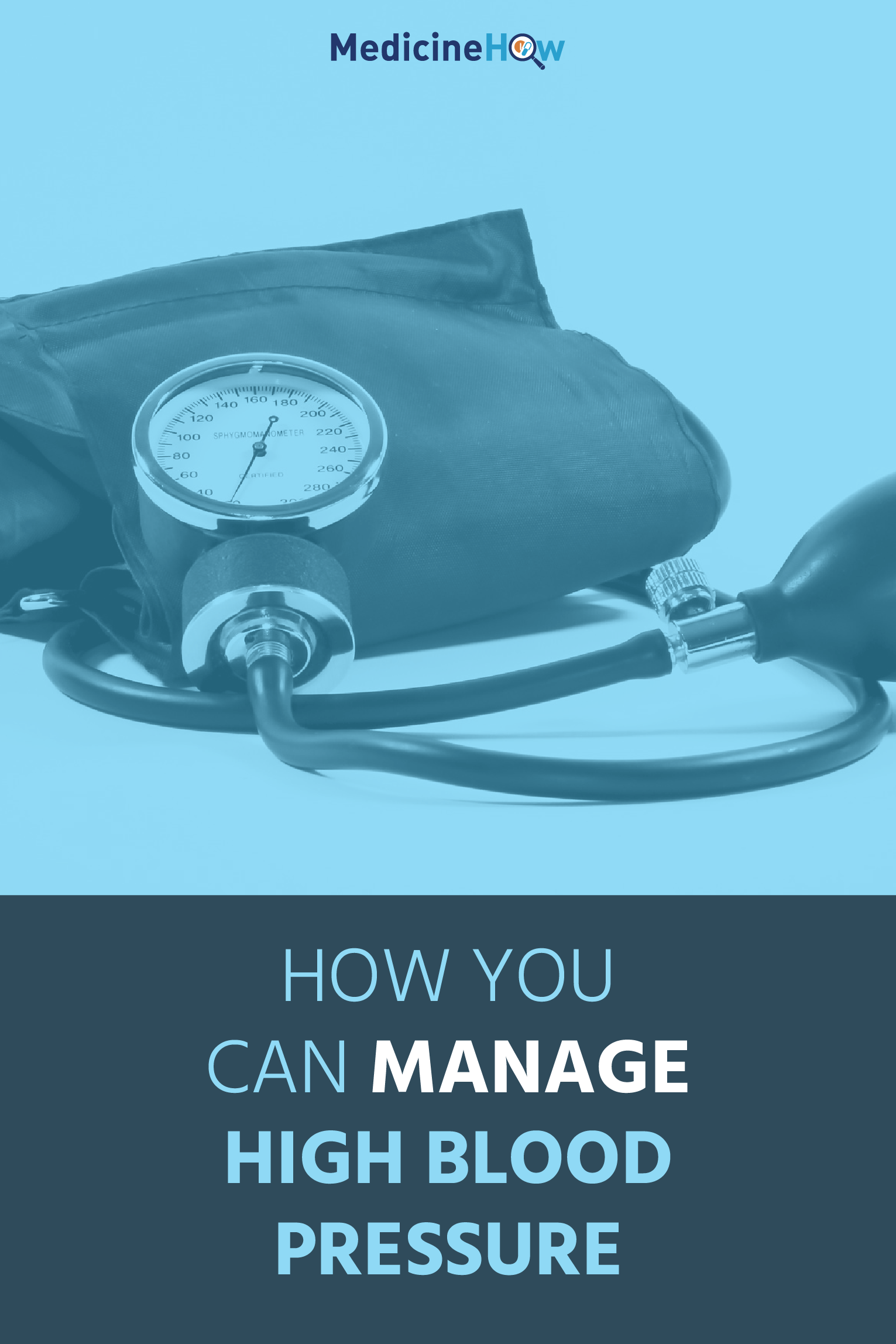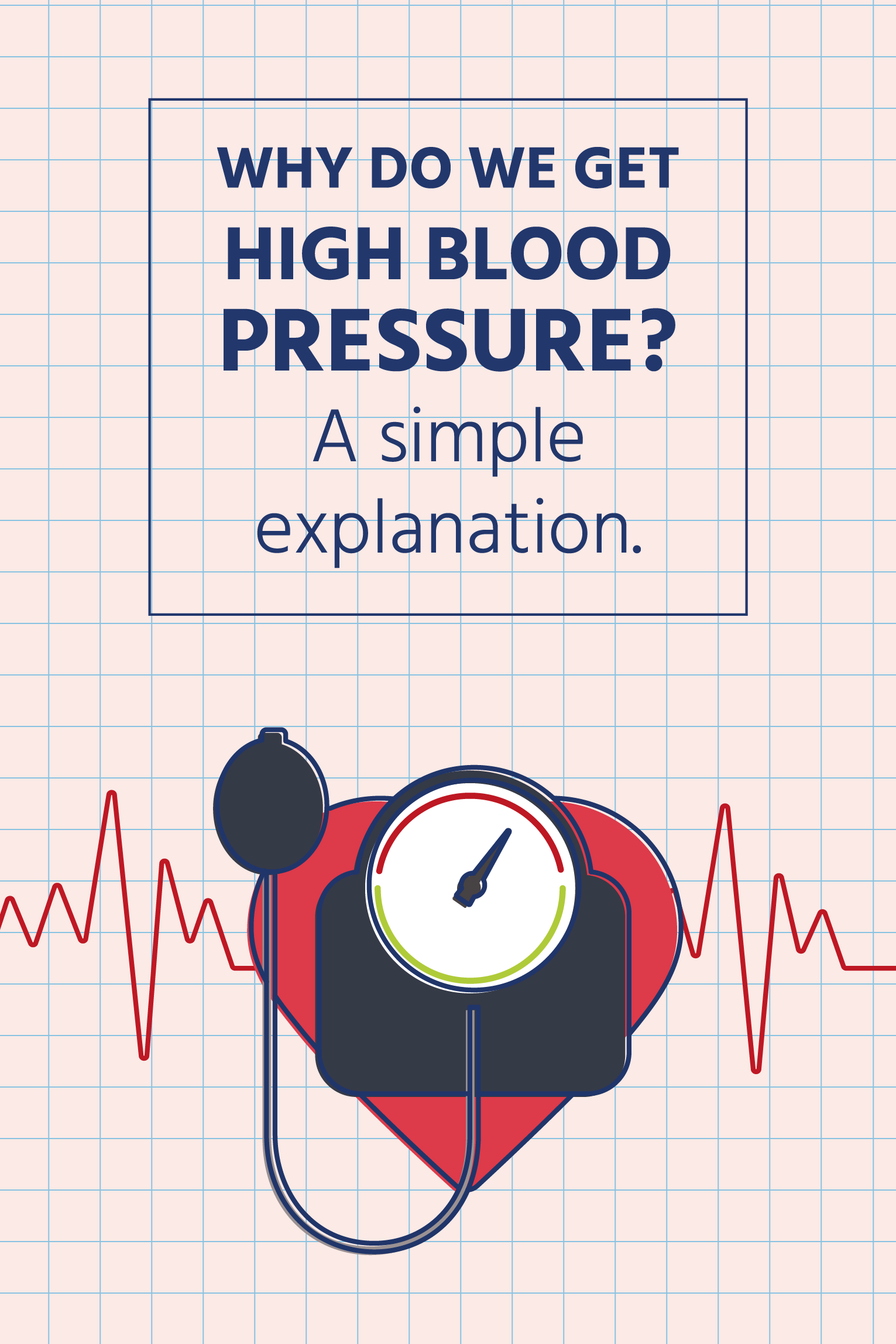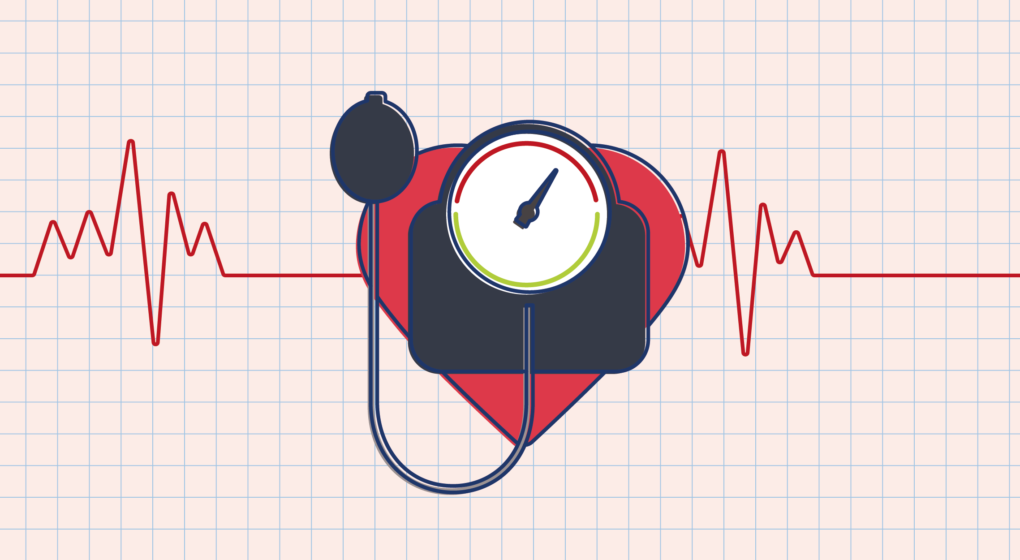
Chances are you know more than a few people with hypertension, or perhaps you have hypertension yourself. Commonly known as high blood pressure, more than one in four of the world’s adult population has hypertension.
I’d say that’s something we should be concerned about.
How does hypertension work?
Let’s start by getting a basic idea of how blood circulates around our body – we’ll look at why we need to do something later on.
The main job of the heart is to pump blood around the body and it does this by contracting and relaxing muscles. When the heart is completely relaxed, it expands and allows blood to flow inside the heart. Once it is full the muscles contract all together and force the blood out of the heart and into the blood stream to go around the body. Then they become relaxed again to allow the flow of new blood back into the heart. This cycle continues over and over usually at least once a second to keep the blood moving around the body as it needs to.
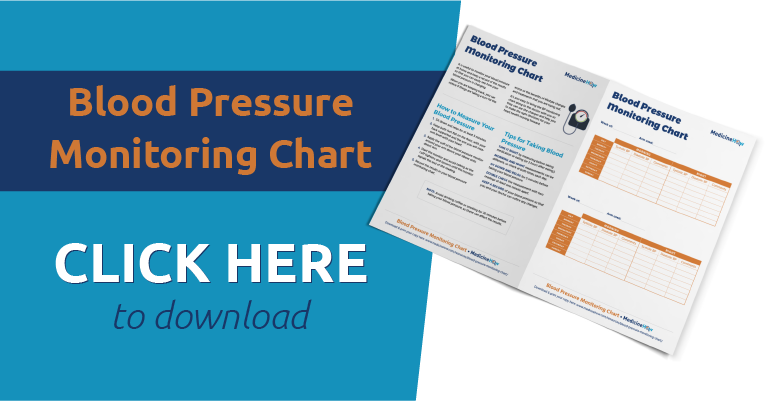
As the heart goes through the different stages of filling up and pushing the blood out, the pressure of the blood is going to change. When the heart is relaxed the pressure is going to be less than when it is forcing the blood out and around the body. This is why we need two measurements of blood pressure, systolic and diastolic, so that we can keep an eye on the whole process of the heart’s pumping the blood around the body.
Systolic blood pressure is taken when the heart is pushing blood out into the circulation, when it is at its peak.
Diastolic blood pressure is measured at the lowest point, when the heart is relaxed and letting the blood flow back inside it.
For an average person, systolic blood pressure is around 120 mmHg and diastolic is around 80 mmHg, which is normally written as 120/80. It is important to not worry too much about typical values – just as some people are taller or short than others, some will naturally have a different blood pressure. More importantly, you should know what your normal blood pressure is, so that you can notice if it begins to change.
Why should we be worried?
The list of signs and symptoms that one with high blood pressure may experience looks something like this:
- nothing
- nothing
- nothing
So it makes us ask again, why should we be worried about hypertension?
The answer lies not in the immediate symptoms one experiences but in the eventual outcomes that high blood pressure increases the risk of.
I like to think of it like plumbing. The pump is our heart and the pipes our blood vessels. If we’re pumping too much water through the pipes too quickly, it’s going to be okay – for a while, at least. We might notice is a little too much vibration as the water rushes through but for the moment it’s okay.
That is, until it’s not. Eventually, the stress gets too much and there is a big disaster as the pipe explodes and water gushes everywhere. It doesn’t happen straight away, but it’s inevitable if the pressure is too high.
Just as that pipe eventually explodes when the pressure of the water gets too much, our arteries and veins start running into problems when the blood pressure gets too high.
When blood pressure isn’t properly managed, the list of things that can go wrong in the long term is a lot more worrying:
- Atherosclerosis (plaque inside your arteries that can block the passage of blood)
- Myocardial Infarction (heart attack)
- Arrhythmia (irregular heart beat)
- Heart failure
- Stroke
- Eye damage (blindness)
- Kidney damage
High blood pressure doesn’t mean that you will certainly experience these things, but it puts extra pressure on the “pipes” of your body and leaves you more likely to get them. Nothing is a given but if we know we are at risk, it make sense to do what we can improve our chances.
How does our body control hypertension?
Our body isn’t dull – it can recognise when there’s a disaster ready to happen and it does its best to handle the situation. In fact, our body has several ways it can adjust our blood pressure and deal with hypertension we may have.
There are three main things the body can alter to control blood pressure – the effectiveness of the heart, the blood vessel diameter and the total volume of blood going around the body. Let’s take a look at each of these.
Effectiveness of the heart
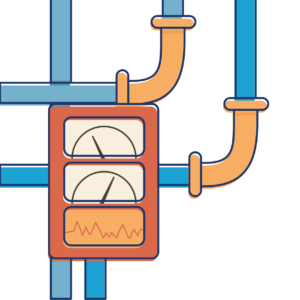 The greater force that the heart has, the more blood that it pumps in any time period, the greater the pressure on the blood vessels will be. Let’s think of it in terms of the plumbing example. With a stronger pump pushing the water through, those pipes are more likely to burst.
The greater force that the heart has, the more blood that it pumps in any time period, the greater the pressure on the blood vessels will be. Let’s think of it in terms of the plumbing example. With a stronger pump pushing the water through, those pipes are more likely to burst.
The body can change how much blood the heart pumps by altering the heart rate and the amount of blood in each pump of the heart (known as the stroke volume). If the heart beats more frequently, or if more blood is pumped with each beat, there will be more blood moving through the body in a certain time.
Understanding that we want to put less pressure stress on the bloodstream, decreasing the heart rate or stroke volume would help to lower blood pressure.
Blood vessel diameter
Vasodilation is the name for when the walls of the blood vessels relax, and in doing so the width of the vessels increase. This enlargement and makes more room for the passage of blood in circulation. Going back to the plumbing scenario, more water can get through at a great speed if the pipe is wider, decreasing the pressure. In the same way, when the body changes the size of the blood vessels, this also can change the ease of passage of the blood, decreasing the blood pressure.
Total volume of blood
This one is simple: the more blood there is in a given space (the pipes of our body, our circulation) the greater pressure there is going to be. There’s simply too much to fit inside. The volume changes according to how much we drink and how much we excrete in urine or sweat.

Sometimes the body fails. What then?
Your body knows that something isn’t quite right but all its efforts don’t seem to be touching the edge of the iceberg – you blood pressure is still sky high.
What can you do to help?
Thankfully, there are some things that all individuals can do to achieve and help maintain healthy blood pressure.
First and foremost, there is your diet. This is a huge one. Limiting the salt you eat, for example, works because it decreases your blood volume, but your diet affects your blood pressure way beyond this.
Your lifestyle choices and the way you live day to day can also have a huge effect.
Herbal remedies, where certain foods have been linked to an effect on blood pressure – some good and some bad – are worth considering.
There are also pharmaceutical options. Most drugs that target hypertension have been around for a long time and we know quite a lot about them, so we have a lot of information about them.
Pin this article for later:
